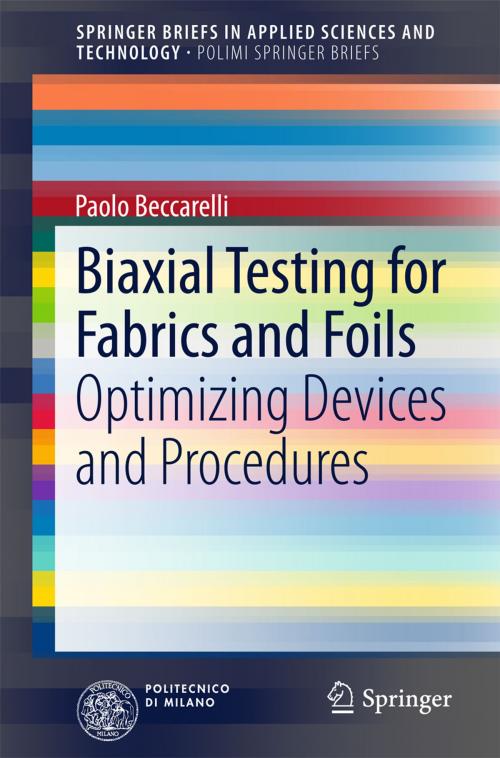Biaxial Testing for Fabrics and Foils
Optimizing Devices and Procedures
Nonfiction, Science & Nature, Science, Physics, Mechanics, Technology, Industrial Design| Author: | Paolo Beccarelli | ISBN: | 9783319022284 |
| Publisher: | Springer International Publishing | Publication: | January 30, 2015 |
| Imprint: | Springer | Language: | English |
| Author: | Paolo Beccarelli |
| ISBN: | 9783319022284 |
| Publisher: | Springer International Publishing |
| Publication: | January 30, 2015 |
| Imprint: | Springer |
| Language: | English |
This book offers a well-structured, critical review of current design practice for tensioned membrane structures, including a detailed analysis of the experimental data required and critical issues relating to the lack of a set of design codes and testing procedures. The technical requirements for biaxial testing equipment are analyzed in detail, and aspects that need to be considered when developing biaxial testing procedures are emphasized. The analysis is supported by the results of a round-robin exercise comparing biaxial testing machines that involved four of the main research laboratories in the field. The biaxial testing devices and procedures presently used in Europe are extensively discussed, and information is provided on the design and implementation of a biaxial testing rig for architectural fabrics at Politecnico di Milano, which represents a benchmark in the field. The significance of the most recent developments in biaxial testing is also explored.
This book offers a well-structured, critical review of current design practice for tensioned membrane structures, including a detailed analysis of the experimental data required and critical issues relating to the lack of a set of design codes and testing procedures. The technical requirements for biaxial testing equipment are analyzed in detail, and aspects that need to be considered when developing biaxial testing procedures are emphasized. The analysis is supported by the results of a round-robin exercise comparing biaxial testing machines that involved four of the main research laboratories in the field. The biaxial testing devices and procedures presently used in Europe are extensively discussed, and information is provided on the design and implementation of a biaxial testing rig for architectural fabrics at Politecnico di Milano, which represents a benchmark in the field. The significance of the most recent developments in biaxial testing is also explored.















